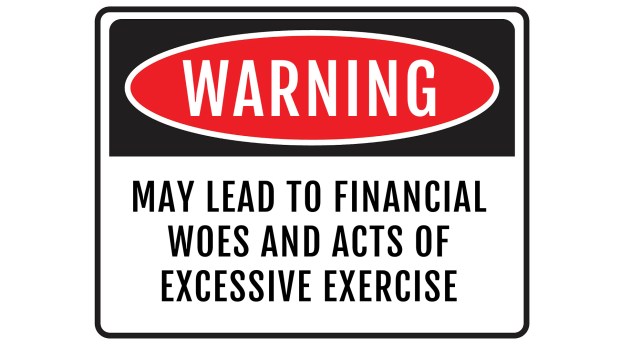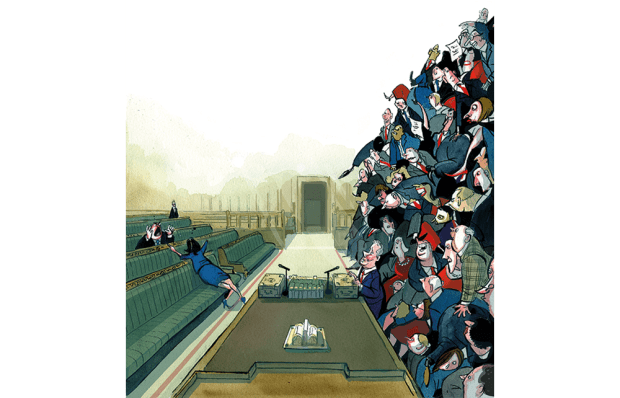Whose victory?
Sir: Politicians are often accused of engaging in doublespeak, and I fear in the case of Boris Johnson’s article (‘Bombshell’, 16 September) the accusation may be valid. According to our former prime minister we’re to believe two contradictory assertions; firstly that a Russian victory risks an immediate and existential threat not only to Russia’s neighbours but to the broader West. Then secondly, that the victory of the Ukrainian armed forces is as inevitable as night following day.
Those two positions cannot both be true – either the outcome of the war is still in the balance, or Ukrainian victory is assured. I fear a degree of romanticism has crept into what I hoped would be a dispassionate analysis from a usually insightful mind.
Lee Jenkins
Bolton
ITN on NDAs
Sir: Daisy Ayliffe, who left ITN in 2020, writes about settlement agreements and confidentiality provisions. It’s an important question, which is why ITN has never sought to prevent anyone raising concerns about serious wrongdoing in the workplace, and we entirely refute any allegations to the contrary. We’re proud not only of our inclusive and respectful culture but of the way that ITN’s rigorous journalistic standards apply to our own internal processes.
Campaigners stress that NDAs should never be used to silence those who have suffered abuse or discrimination. We agree wholeheartedly. But campaigners also acknowledge that settlement agreements, used responsibly, can be an appropriate tool to resolve complex workplace disputes.
There has been much discussion about this topic in recent years. We have listened. That’s why, in April last year, we decided to no longer use confidentiality clauses unless in exceptional circumstances: that is, where the individual had themselves requested it or where there is a duty of care to all parties involved in a dispute. This shows ITN’s willingness to continually listen and adapt and reflects my personal commitment to ensuring that our role as a trusted, transparent organisation always extends to our own people.
Rachel Corp, CEO ITN
London WC1
Behind the wheel
Sir: I was a little taken aback by Charles Moore’s assertion that people over 70 should be made to take a second driving test because many of them are driving badly (Notes, 16 September). Perhaps he could provide us with the statistics showing the ages of all drivers convicted of dangerous or careless driving, or having claims made against their insurance policies by others. I have a very strong suspicion they will show the over-seventies to be a less accident-prone bunch than the under-forties.
David Cockerham
Bearsted, Kent
Chucking Stones
Sir: Sadly, Rod Liddle is right about the edge and variety lacking from the Rolling Stones (Arts, 16 September). But they did not jettison Mick Taylor, whose distinctive guitar style they knew was crucial to their best work – he walked out. The hard drugs, lack of credit and band sloppiness are all cited as his reasons.
As Rod would seem to agree, the peerless live set in 1969 and the whole vibe on Sticky Fingers among four classic studio albums provide the fitting legacy from that hard-rocking era, unlike the formulaic stadium material after the 1970s.
Struan Macdonald
Hayes, Kent
Short-term damage
Sir: Roger Burgess is quite right that the political system disallows the long-term strategy the UK desperately needs (Letters, 16 September). So much of our infrastructure is no longer fit for purpose, from the NHS to railways and schools. What is needed is cross-party support for 20- to 25-year programmes to underpin and improve the essential but damaged infrastructure of this once great country. I think the voting public would welcome it.
Ruth Watson
Sibton, Suffolk
Best buy
Sir: Charles Moore’s memory has inflated the fee for a dog licence (Notes, 16 September). It was never more than five bob: 7s and 6d was the fee for a marriage licence, hence the classic Bingo callers’ cry, ‘7 and 6 – was she worth it?’ Sixty years on I can confidently say – ‘Every penny’.
R.H.W. Cooper
Grasmere, Cumbria
Hawk in the hand
Sir: Rod Liddle (Letters, 9 September) seems to be somewhat confused about the old saw about the hawk and handsaw. The hawk in ‘not knowing a hawk from a handsaw’ is not a bird but a plasterer’s tool, a flat square with a handle underneath which holds a pile of wet plaster which he can then apply to the wall with his trowel.
Lucretia Denny
Cornwall
Slippery character
Sir: Mark Mason, in his Notes on prison breaks (16 September), does not mention Harold Webb, who in 1951 was banged up in Dartmoor. One night he stripped naked, buttered up his body and squeezed into an air duct in his cell. He emerged in the exercise yard via a drain cover, earning the nickname ‘Rubber Bones’. He scampered naked across the yard to a workman’s hut, in which he discovered a pair of overalls and a ladder just long enough to take him over the wall and out. Devonshire police put blocks on every road in or out of Dartmoor, but Harold took a train. He was subsequently arrested in Soho, where he said he’d come to see his girlfriend. I like to think he got to her before they got to him.
Colin Bostock-Smith
Uckfield, East Sussex
Write to us: letters@spectator.co.uk
Got something to add? Join the discussion and comment below.
Get 10 issues for just $10
Subscribe to The Spectator Australia today for the next 10 magazine issues, plus full online access, for just $10.
You might disagree with half of it, but you’ll enjoy reading all of it. Try your first month for free, then just $2 a week for the remainder of your first year.














Comments
Don't miss out
Join the conversation with other Spectator Australia readers. Subscribe to leave a comment.
SUBSCRIBEAlready a subscriber? Log in